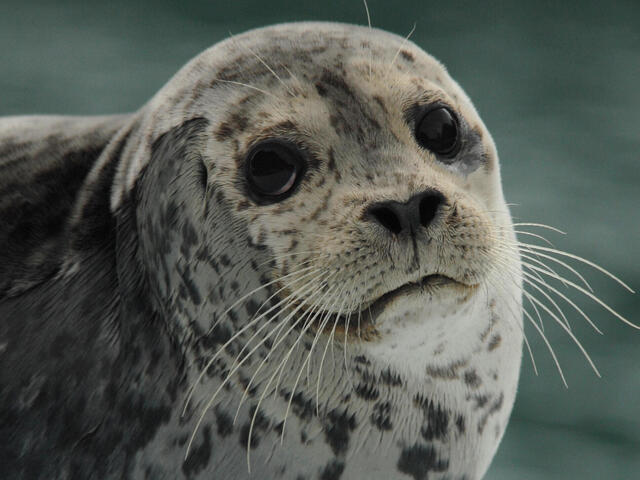Exotic Pet Lifespans: Understanding Chameleon and Raccoon Longevity in Captivity
Exotic pet lifespans: chameleons and raccoons in captivity
Exotic pets like chameleons and raccoons have become progressively popular among enthusiasts look for unconventional animal companions. Nevertheless, before bring these fascinating creatures home, potential owners should understand their expect lifespans and the significant commitment require providing proper care throughout their lives.
Chameleon lifespan as pets
Chameleons are remarkable reptiles know for their color change abilities and unique physical characteristics. When keep as pets, their lifespan varies importantly depend on species, care quality, and environmental conditions.
Average lifespan by species
Different chameleon species have varied lifespans in captivity:
-
Veiled chameleons (cChamaeleoncalyptrate )
Typically, live 5 8 years in captivity. Males oftentimes liveproficientt than females, who may experience health complications relate to egg production. -
Panther chameleons (fLuciferpaParis:
)
Broadly survive 5 7 years with proper care. These colorful chameleons are among the near popular species keep as pets. -
Jackson’s chameleons (triotersjacJackson
)
Ordinarily live 5 10 years in captivity when comfortably maintain. -
Fischer’s chameleons (ksinfoniafiFischer:)
Typically, have a shorter lifespan of 3 5 years.
Factors affect chameleon longevity
Several critical factors will influence how proficient a pet chameleon will live:

Source: oddlycutepets.com
Habitat requirements
Chameleons require specialized enclosures that mimic their natural environment:
-
Vertical space:
Chameleons are arboreal, require tall enclosures with plenty of climb branches. -
Ventilation:
Proper airflow is essential to prevent respiratory infections. -
Temperature gradient:
Enclosures need both bask spots (85 95 ° f )and cooler areas ( ( 75 ° f ).) -
UVB lighting:
Essential for vitamin d3 synthesis and calcium metabolism. -
Humidity control:
Species specific humidity levels must be maintained, typically between 50 70 %.
Diet and nutrition
Proper nutrition importantly impact chameleon lifespan:
-
Varied insect diet:
Crickets, Dubai roaches, super worms, and other gut load insects should form the basis of their diet. -
Calcium supplementation:
Regular dusting of prey items with calcium powder prevent metabolic bone disease. -
Vitamin supplements:
Multivitamins contain vitamin A, d3, and other essential nutrients should be provided on a regular schedule. -
Hydration:
Chameleons typically don’t drink from stand water and require regular misting or drip systems for hydration.
Stress management
Chameleons are specially sensitive to stress, which can importantly shorten their lifespan:
-
Solitary housing:
Most chameleons are solitary and should be housed separately to prevent stress and aggression. -
Limited handling:
Unlike many pets, chameleons mostly don’t enjoy handle and can become stress with excessive interaction. -
Quiet environment:
Loud noises and frequent disturbances can cause chronic stress. -
Visual barriers:
See their reflection or other chameleons can trigger stress responses.
Healthcare access
Regular veterinary care from an exotic animal specialist is crucial:
-
Preventative check-ups:
Annual examinations help catch health issues other. -
Parasite screening:
Regular fecal exams can detect internal parasites before they cause serious health problems. -
Prompt treatment:
Quick intervention for common issues like respiratory infections, metabolic bone disease, or eye infections can extend lifespan.
Signs of a healthy chameleon
A chameleon with potential for a long lifespan will display these characteristics:
- Alert behavior and active movement
- Bright, responsive eyes
- Regular feeding habits
- Appropriate weight for species and age
- Smooth skin without burns, wounds, or unusual bumps
- Normal shed patterns
Raccoon lifespan as pets
Raccoons are intelligent, adaptable mammals that can form bonds with humans but present significant challenges as pets. Their lifespan in captivity differ considerably from their wild counterparts.
Expect lifespan in captivity
Wild raccoons typically live 2 3 years due to predation, disease, and accidents. Still, as pets with proper care, raccoons can live importantly longsighted:
-
Average pet raccoon lifespan:
10 15 years in captivity -
Record longevity:
Some good care for pet raccoons have reach 20 years
Legal considerations
Before consider a raccoon’s lifespan as a pet, potential owners must understand the legal restrictions:
- Raccoons are illegal to keep as pets in many states and countries
- Permits or licenses may be required where they’re legal
- Ownership may be restricted to wildlifrehabilitatesrs or educational facilities
- Local ordinances may override state laws, create additional restrictions
These legal barriers exist for good reasons, include concerns about zoonotic diseases, wildlife conservation, and the challenging nature of raccoon care.
Factors affect raccoon longevity
Housing requirements
Proper housing importantly impact raccoon health and lifespan:
-
Space needs:
Minimum enclosure size of 8′ x 8′ x 8′ with both indoor and outdoor access -
Enrichment:
Climb structures, water features for wash food, toys, and regular environmental changes -
Security:
Escape proof enclosures with dig barriers and chew resistant materials -
Temperature control:
Protection from extreme temperatures and weather
Diet and nutrition
Raccoons require a balanced, varied diet to maintain health and longevity:
-
Omnivorous diet:
Mixture of proteins (eggs, lean meats, insects ) fruits, vegetables, and particularly formulate raccoon food -
Portion control:
Obesity is common in captive raccoons and can importantly reduce lifespan -
Calcium phosphorus balance:
Critical for preventing metabolic bone disease -
Fresh water:
Clean water for both drink and washing food
Behavioral needs
Meet a raccoon’s behavioral needs is essential for their mental health and longevity:
-
Social interaction:
Raccoons require regular interaction and mental stimulation -
Destructive tendencies:
Natural behaviors include dig, climbing, and manipulate objects -
Nocturnal activity:
Near active during evening and night hours -
Seasonal changes:
May experience behavioral changes during mate season
Medical care
Find appropriate veterinary care for raccoons can be challenging:

Source: mypetsfamily.com
-
Specialized veterinarians:
Few veterinarians have experience with raccoons -
Preventative care:
Regular check-ups and appropriate vaccinations -
Common health issues:
Obesity, dental problems, parasites, and nutritional deficiencies -
Rabies concerns:
Raccoons are a primary rabies vector species, require special consideration
Adolescent development and behavior changes
Many pet raccoons experience significant behavioral changes at sexual maturity (roughly 1 2 years )
- Increase aggression and territorial behavior
- Mark behaviors include urine spray
- Decrease tameness and increase wild instincts
- Potential for destructive behaviors and household damage
These changes oftentimes lead to abandonment or surrender, importantly reduce potential lifespan.
Compare chameleons and raccoons as pets
Care complexity
Both animals require specialized care, but with different challenges:
-
Chameleons:
Technically complex care with specific environmental parameters -
Raccoons:
Behaviorally complex care with significant space and enrichment need
Cost considerations
The lifetime cost of keep these animals vary dramatically:
-
Chameleon lifetime cost:
$3,000 $7,000 include setup, food, supplements, veterinary care, and ongoing maintenance -
Raccoon lifetime cost:
$15,000 $30,000 + for proper housing, food, veterinary care, and potential property damage
Time investment
Daily care requirements differ considerably:
-
Chameleons:
30 60 minutes every day for feeding, misting, cleaning, and monitor -
Raccoons:
2 4 + hours every day for feeding, enrichment, socialization, and enclosure maintenance
Ethical considerations
Wild animal welfare
Both chameleons and raccoons present ethical questions as pets:
-
Chameleons:
Many species are wilderness catch, contribute to population declines; captive breeding is increase but yet limit for some species -
Raccoons:
Oftentimes obtain as orphan babies, but adult raccoons seldom thrive in captivity; domestication process has not occurred as with traditional pets
Surrender and abandonment
The reality of exotic pet ownership oftentimes doesn’t match expectations:
- Specialized exotic animal rescues are overwhelmed with surrendered animals
- Many owners underestimate the commitment require for the animal’s full lifespan
- Release exotic animals can harm local ecosystems or suffer and die in unsuitable environments
Alternatives to ownership
For those fascinate by these animals but unable to commit to their full lifespan:
-
Wildlife rehabilitation volunteering:
Work with injure or orphan wild animals -
Zoo or nature center memberships:
Support professional care of exotic animals -
Wildlife photography:
Observe animals in their natural habitats -
Virtual adoption programs:
Support conservation efforts for wild populations
Conclusion
While chameleons and raccoons can live comparatively long lives as pets—5 10 years for chameleons and 10 15 years for raccoons — these lifespans represent significant commitments of time, resources, and specialized care. Both animals require dedicated owners willing to provide species appropriate environments, diets, and veterinary care throughout their lives.
The decision to bring either animal into your home should not be make gently. Potential owners should soundly research care requirements, legal restrictions, and ethical considerations before commit to the full lifespan of these fascinating but demand exotic pets.
For many animal enthusiasts, the well-nigh responsible choice may be to appreciate these remarkable creatures through more ethical alternatives to ownership, ensure both animal welfare and personal satisfaction.
MORE FROM getscholarships.de













